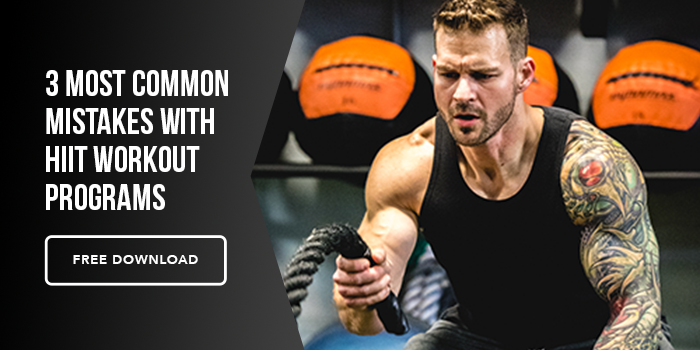HIIT cardio is all the rage these days. I mean look at how many businesses are making millions off of it - CrossFit, Orange Theory, SoulCycle, you name it. They capitalized on the volumes of people too scared to work out on their own, who most likely loved aerobic classes, and developed a program that actually pushes them. But is it all it's cracked up to be?
In the Beginning Yes, But Then…
I think HIIT programs are great. They shed fat fast, they pass the time, and most of them are community driven. What’s not to love? I’ve seen it get a lot of clients past their fat loss plateaus, and burn that last 5-10 pounds they couldn’t lose. So in that case, keep going right? Ehh not so fast.
These faster paced, cortisol raising programs are a tool just like everything else in the gym. Utilize them when you need it, but also know when to take a break. Nothing should be done indefinitely without a break.
Cortisol, both Friend and Foe
This is probably the biggest focus for why HIIT only works for a short period. To put simply, you’ll burn out. I don't want to get too technical on the effects of cortisol, but it’s basically an energy mobilizer. It increases during periods of stress (think at work meeting a deadline, or in the gym). It signals the body to provide energy so that you are ready to handle whatever is causing the stress. But if we are in that stressed state for too long cortisol is elevated for too long. Think of it like the times you pulled an all nighter to study. At a certain point you’re fried. And if you don’t go to sleep or unwind, your body will shut down.
In regards to working out, if you keep having waves of stress and thus cortisol release, your body will adapt each time. And much like when you build a tolerance to alcohol, your body will need a higher and higher dose of cortisol for the receptors to respond to lowering stress. That is no bueno.
Let’s also consider that most people who do HIIT cardio for longer periods are the types of people who love that intense stimulus to begin with. They chase the high and not the goal. Chances are, this isn’t the only thing elevating your cortisol. If you gravitate towards this type of high, then you probably unknowingly chase the high at work, or elsewhere in your environment. You have last minute deadlines, you don’t eat properly to recover, and you lack enough sleep to catch up on work. All this adds up.
Solution: I’ve had more clients than not, actually REACH their goals when we established this was the case, had them back off the intense stuff both in and out of the gym, and had them slow things down! People think they need all this intensity, when in reality doing the opposite is usually the solution. If you find you’re overly stressed, back off your normal routine and learn to prioritize sleep, good food, and slower paced workouts focused on building muscle.
Increased Risk of Injury
The other issue with HIIT training over the long term, is it increases your risk for injury. Look at what the number one issue was with CrossFit when it first launched - injuries, rhabdo, muscle tears, joint injuries, you name it. We are a competitive species. The moment you add super technical movements and a time constraint, we’re going to do whatever it takes to beat our last time. Even if that means less than ideal form.
If that wasn’t bad enough, in general because HIIT programming usually takes place in a group setting vs one on one, the teaching isn’t isn’t as intimate. Bad movement patterns are learned and never addressed. Is anyone looking at your range of motion and suggesting mobility exercises to combat your limitations? Do YOU even have the self awareness after your 2+ years of attending SoulCycle to fix that knee problem you’ve been having? You can’t just ignore these problems away. They’ll catch up to you sooner or later.
Solution: BE proactive. I said it in the last solution. You NEED to make time for recovery. Your heart rate can’t stay elevated 24/7. Focus on lagging body parts. Focus on preventative injury and exercises that’ll help strengthen your lagging muscles, but also your muscular frame overall. If you take spin classes, do some work for your upper body. If you’re in CrossFit focus on more mobility/injury prehab work.






